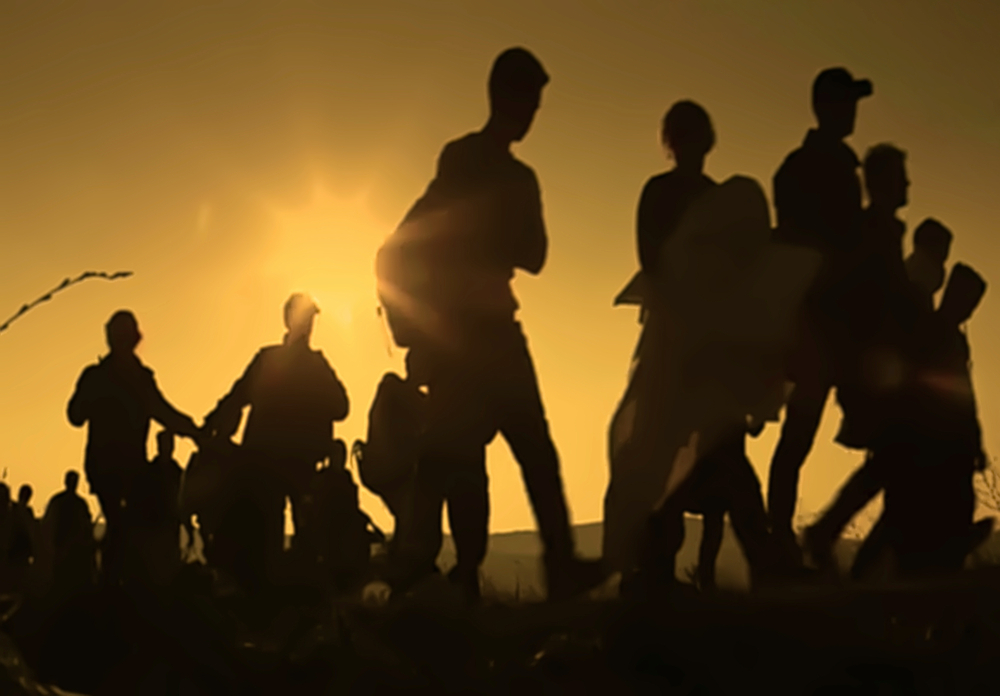
A Dutch church’s efforts to prevent the deportation of an Armenian family have made recent headlines. CBC Radio reported in November 2018 that Bethel Church in The Hague has hosted round-the-clock services since October 28. Taking advantage of a law forbidding police from entering houses of worship during religious services, the church has accepted help from more than 400 pastors from all over the Netherlands to keep these services running.
The Dutch church’s efforts to protect this family aren’t merely newsworthy or inspiring. They also demonstrate how some Christians choose to respond to the plight of Immigration and refugees. Amid humanitarian concerns, public policy debates, and troubling trends south of the border, it’s worth examining how Canadian Christians handle these same issues.
The World Watches an American Crisis
Current immigration concerns in the United States center around its Immigration and Customs Enforcement division separating migrant children from their families and the infamous wall proposed for the United States-Mexico border. Pro-refugee advocates express worry and outrage over the treatment of asylum seekers, particularly LGBTQ individuals, who make up the recent migrant caravan from Central America.
American Christians adopt a wide range of stances on these issues. The United States Conference of Catholic Bishops urges “justice and mercy” in government immigration policies. Progressive Christians tend to side with immigrants and refugees, calling for policy reforms and assistance to those in need. Meanwhile, Vox writer Tara Isabella Burton disclosed that 68 percent of white Evangelicals do not believe the US has any responsibility to welcome refugees. Burton suggested that such hostility may have its roots in xenophobia, nativism, and racism.
Canadians on Immigration: More Politics, Less Religion
A July 2018 Toronto Star article sums up the current political stances on immigration. Much of the debate centers around the 2005 Safe Third Country Agreement, which requires refugees to seek asylum with the country in which they arrive first. Those who journey to the United States and attempt to enter Canada at official checkpoints are typically turned away. However, a key loophole allows them to pursue asylum status in Canada by crossing at an “irregular” point. Some argue that the exception for irregulars should apply to the entire border given the American crackdown on immigrants. Others cite strained resources as justification for harsher crackdowns.
Non-Canadians may be surprised to find that religion doesn’t enter much into these debates. In fact, a December 2017 Maclean’s piece reveals that evangelicals only make up around 10 percent of Canada’s population. While they somewhat mirror their American counterparts in their stances on issues such as abortion and LGBTQ rights, they also try to curry favor with Christian immigrants.
Yet Muslim immigrants often receive a colder welcome. In a May 2018 article for The Guardian, journalist Omar Mouallem followed the story of Syrian refugee Mohammad El Hindawi and his encounters with racism. Mouallem opined that a “white Euro-Christian norm” was at the center of distrust, negativity, and prejudice towards people like El Hindawi.
Lingering Questions and Continued Debates
All over the world, refugees have left their homes due to economic crises, famine, political upheaval, and human rights abuses. Many of them seek new lives in the United States and Canada, hoping for safety and freedom from the horrific conditions they’ve fled. While the world watches shocking events unfold in the United States, quiet debates exist over the same sort of immigration issues in Canada.
Unlike our American counterparts, most anti-immigrant sentiments in Canada aren’t necessarily cloaked in religious beliefs. Nevertheless, racism and far-right extremism could be to blame. Although much of Canadian society strives to be egalitarian and multicultural, some of the disdain against immigrants may reveal deeper issues that require resolution.

